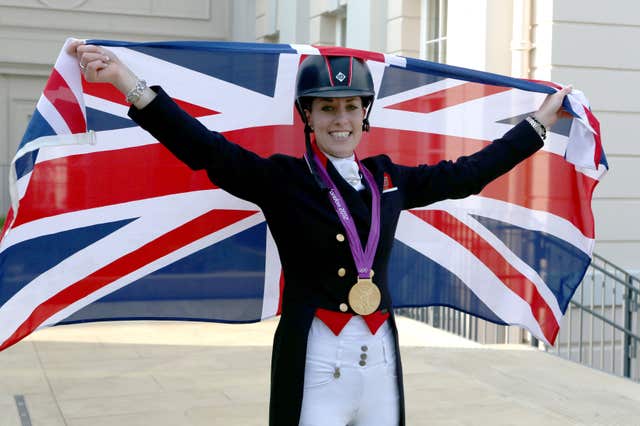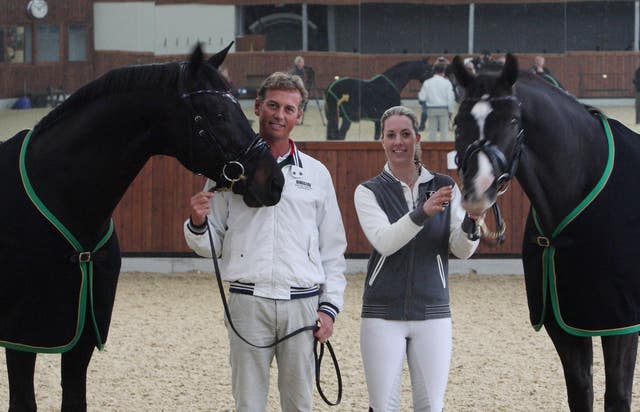The rise and fall of Charlotte Dujardin
British rider dominated the sport with medals and world records.

Charlotte Dujardin was the golden girl of British equestrian who went from sporting unknown to Olympic champion in barely a year.
But six medals and three Olympics into her remarkable journey, Dujardin’s world has fallen apart.
Her withdrawal from the Paris Olympics has come barely a week before she was due to compete after a video emerged from four years ago showing her making what she described as “an error of judgement” during a coaching session.
The 39-year-old has received a suspension from equestrian’s governing body – the International Federation for Equestrian Sports – that will remain in place pending the outcome of the investigation proceedings.

Dujardin won two gold medals in London and another one at the Rio Games four years later, where she also claimed a silver, and then two bronzes in Tokyo three years ago.
Her dressage performances aboard the now-retired Valegro rewrote dressage history. Such was the combination’s dominance they still hold all three of the sport’s flagship world records.
One more medal in Paris – it was a likely prospect – would have made her Britain’s most decorated female Olympian, with a seventh podium finish putting her ahead of cyclist Laura Kenny.
Rewind to the summer of 2011 and a small gathering of equestrian journalists at Greenwich Park in London where British Dressage was holding an informal media day for its Olympic candidates 12 months out from London.
Multiple Olympian Carl Hester inevitably commanded most media attention, and no-one really knew the identity of the person stood alongside him.
That was until Hester advised that questions would be far better directed at Dujardin than him because she was “going to win gold in London”.

When Hester, who will shortly take part in his seventh Olympics, talks dressage, everyone listens. The following February, Dujardin and Valegro broke their first world record.
Quite simply, the sport had never seen anything like the Dujardin and Valegro phenomenon.
In addition to the Olympic successes – her freestyle routine in London to the accompaniment of Land of Hope and Glory and the Big Ben chimes wowed a whole new audience – two world and six European gold medals were also collected.
Grand prix, grand prix special and freestyle world records all went, and throughout it all hero and mentor Hester knew he had told everyone so.
Born in Enfield and brought up in Bedfordshire, Dujardin first sat on horses at the age of two, riding her sister’s charges back from the showjumping arena to the lorry for home, and it was the world of showing that initially attracted her.
Showing is an equestrian discipline all about highlighting the best qualities of a particular breed, and Dujardin was good enough at it by her mid-teens to be a prolific winner at the prestigious Horse of the Year Show.
In her early 20s, Dujardin’s riding prospects took a new turn when she concentrated on dressage, and she was encouraged to seek employment with Gloucestershire-based Hester, who duly offered her a job.
Dujardin made enough of an impression to be offered some training work with Valegro, a horse that Hester co-owned, and it was a partnership that instantly gelled.
Renowned dressage trainer Hester could see something special developing, notably an extraordinary calmness under pressure, which was a priceless commodity in a sport like dressage where the tiniest mistake can cost medals and titles.
By 2011, Dujardin and Valegro were part of the British team that contested the European Championships in Rotterdam, winning gold, which set up a full-scale tilt at London 2012.
It had always been the intention to retire Valegro following Rio, and Dujardin took time away to help prepare the next equine superstars at base camp just outside the Gloucestershire market town of Newent, where a street is now named after Valegro.
Those glory days, though, now seem like a distant memory.





